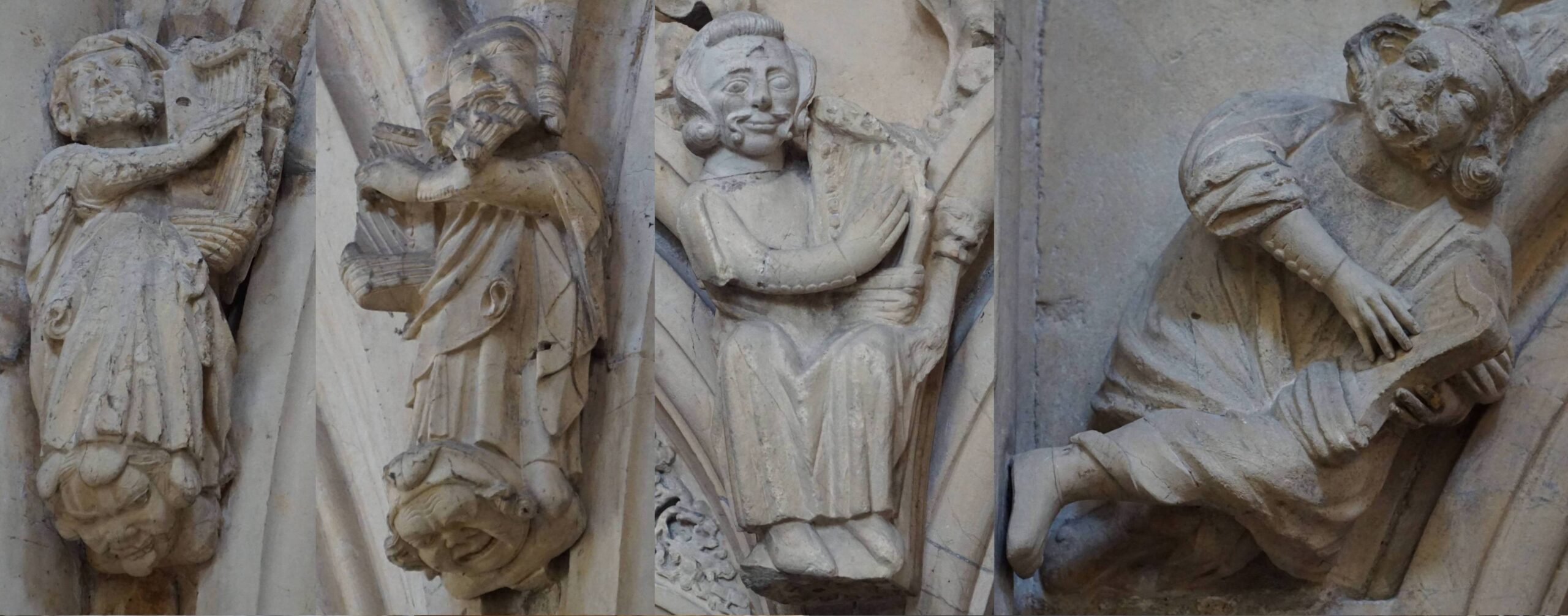
Sumer is icumen in is the second earliest surviving English secular song, and the earliest that is complete and polyphonic, sung in this article’s video with all six voices indicated in the manuscript, circa 1250. Sumer and another song, Perspice Christicola, are laid out on the page to the same melody. It seems an unlikely coupling: one about the sights and sounds of summer, with its singing cuckoo, growing seeds, bleating ewe and farting buck; the other a devotional song, with God sending Christ to destruction in order to free the captives of sin and crown them in heaven.
A later scribe, c. 1261–65, returned to the page to add rhythm to the originally non-mensural (not indicating rhythm) notation and, in doing so, also changed the pitches of some notes. The changed notes are strategic, removing the musical cuckoo call, and this scribal interference suggests that the Middle English secular Sumer is icumen in and the Latin devotional Perspice Christicola made an uneasy pair. The version of Sumer recorded for this article restores the originally-written pitches, with the effect of reinstating the cascading cuckoo call, a central musical effect erased in the amended notes usually sung.
This is a revised version of an article originally published in February 2016.

